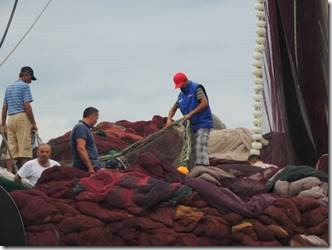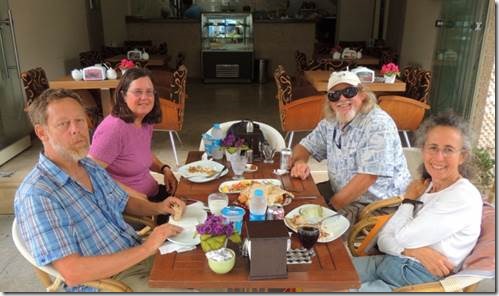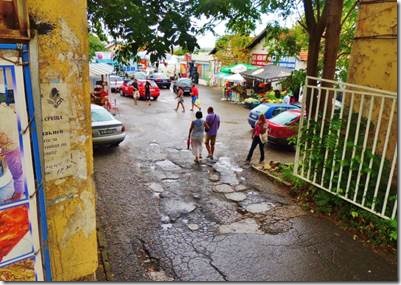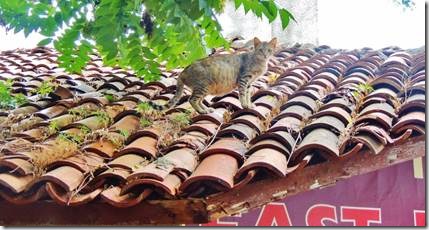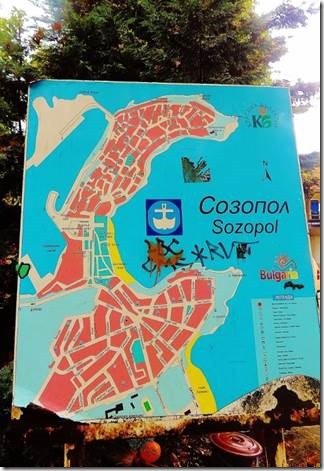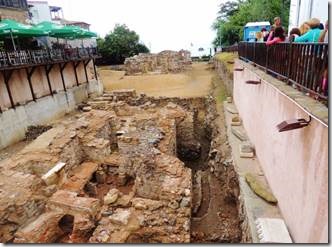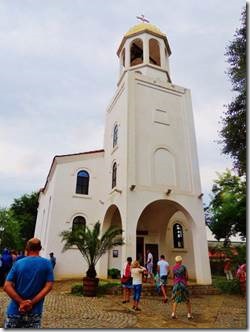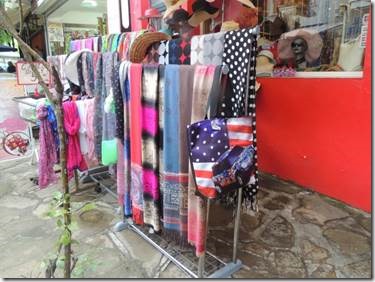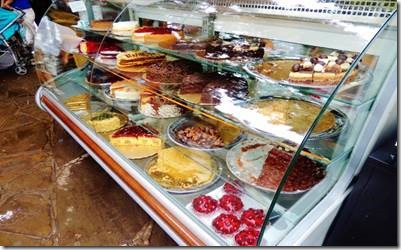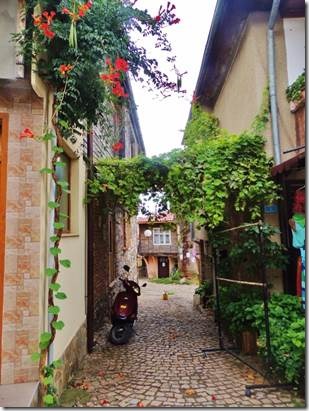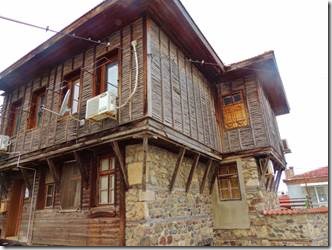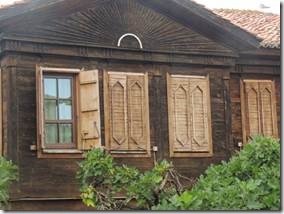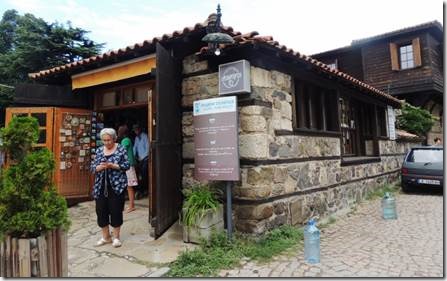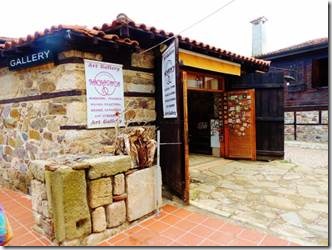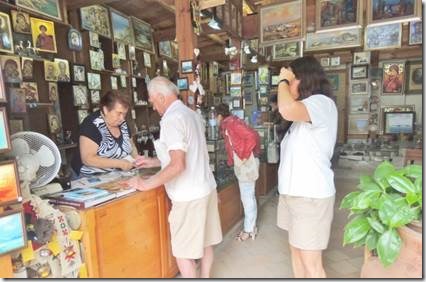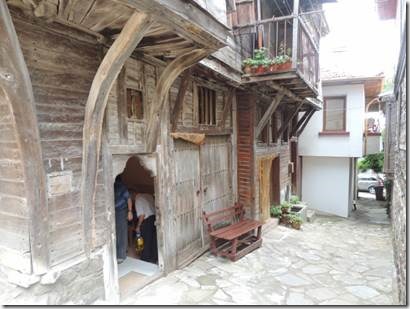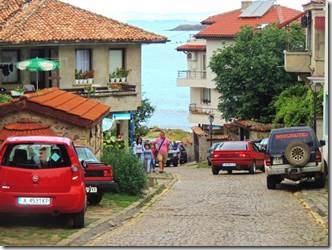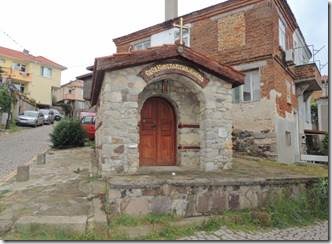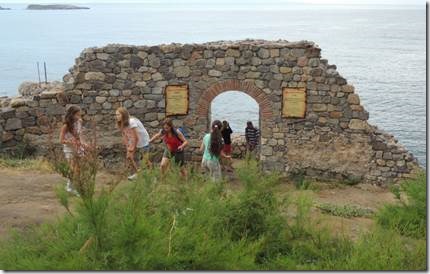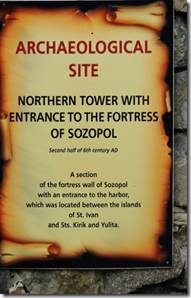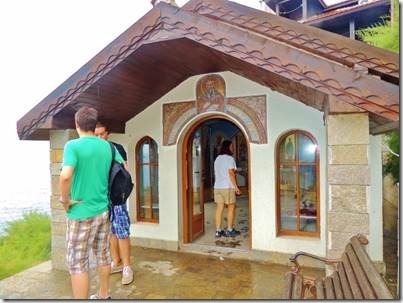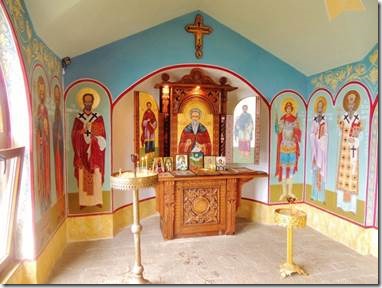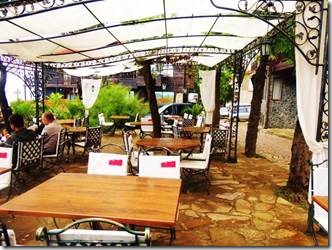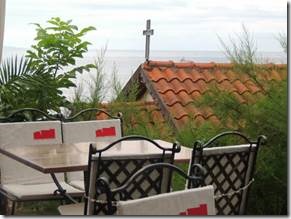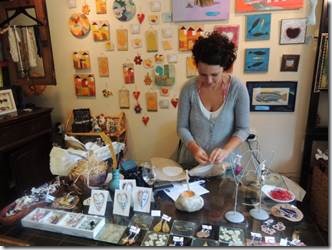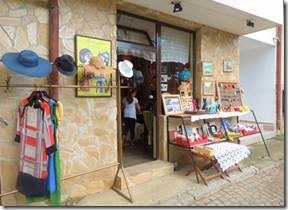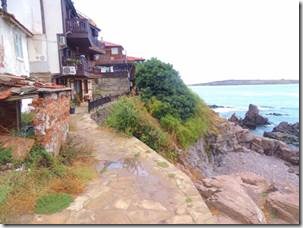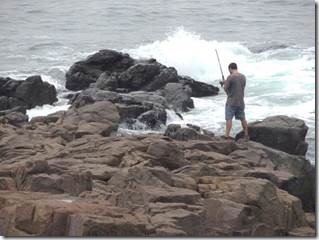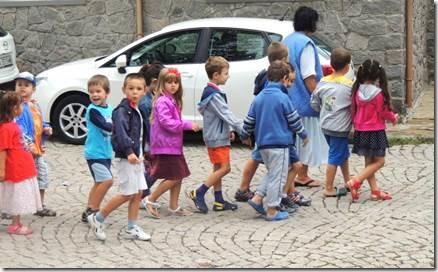Silivri, Turkey
Merhaba,
We took the dingy to town today for some lunch and a visit to the grocery store. That’s about all we should really do and be acceptable as we’ve not officially checked into Turkey yet. There are no checking in facilities here in Silivri. We have two more day passages and then we’ll be in Çanakkale where we will officially check into Turkey. The weather will keep us here until Monday and then we’ll set off.
It is Victory Day in Turkey (defeat of the Greeks) so we’ve been treated to official speeches and dramatic music during the day and Turkish party music long into the night. All along the way, the Ottoman Empire has been “the enemy.” Silivri is a fishing village so I’ve taken lots of photos of the men hard at work arranging and rearranging nets.
Turkish hospitality is still Turkish hospitality. We ate lunch in a small doner shop. While we waited for our food, a spicy eggplant caviar and a chopped tomato/cucumber salad were brought to the table as well as a basket with flat and yeast bread….no charge for that or the tea afterwards.
This email is about Sozopol, Bulgaria; our real last stop of the passage to Turkey. We stayed for two nights in the lovely seaside tourist town. It is so small that in no time you feel at home and eager to wander. I took lots of photos so this email is just the first of probably 3.
Ru
Sozopol
“Old town Sozopol’s romantic atmosphere with its narrow cobbled streets, houses with high fences on stone foundations with sun-dried brick walls and external wooden boarding, typical for the Black Sea school of architecture, make it a most enchanting and captivating place.
Time in Sozopol has different dimensions – fishermen are still seen catching what the Sea has to offer on wooden boats; older women sit in front of the picturesque houses, chatting, knitting, selling freshly picked figs, homemade jams and jellies, while almost everyone who decides to dig in the ground or to build something stumbles upon remnants from the past – clay vessels, ancient coins, wooden objects, little statues and much, much more
It was severely devastated in the middle of the 14th century during an attack of the Genoa fleet. Later it was conquered and sold to the Romans by the knights of Amadeus of Savoy. After a long siege the town fell under Turkish rule in 1453 – Sozopol residents voluntarily surrendered to the Ottoman army which enabled them to preserve their lives houses, and monasteries. The Sultan turned the town in its own property in order to be able to collect taxes from the thriving port, which he could not do with Muslims. The move, however, saved Sozopol from the raids of Cossack pirates. In 1623 they robbed the St. John the Baptist monastery, bringing an end to its existence. The legend tells that the pirates were hiding their booty and treasures in underwater caves off the rocky shores, particularly the one of the St. Toma Island, called by locals The Snake Island. Sozopol was assigned to the newly independent Bulgaria in the 19th century. Almost all of its Greek population was exchanged with Bulgarians from Eastern Thrace in the aftermath of the Balkan Wars.”
See more at: http://www.novinite.com
By Decree No 320 of the Council of Ministers of September 7, 1974, Old Town Sozopol was declared an architectural and archaeological sanctuary under the name "Antique Sozopol". It includes over 180 Sozopol houses from the Bulgarian Revival, built between the middle of the 18th century and the beginning of the 19th century, some of which were declared monuments of culture. Most popular among them are The Marieta Stefanova House, The Kurdilis House, The Kreanoolu House, The Todor Zagorov House, The Kurtidi House, and The Dimitri Laskaridis House, among others. – See more at: http://www.novinite.com/
|
Just near the marina was a small local market area where shops sold fruit, vegetables, fresh fish, and household supplies. Just before leaving Sozopol we bought fruit and toilet paper; the essentials. |
|
Cat on a ceramic tile roof… looks like she’s about to have kittens |
|
The green mark outlined in black middle of the left part of the map is DoraMac on the newer docks where we were tied. Old Town was to the north and new town, the south. Both were very walkable from the boat. Coney Island meets Provincetown? Actually Sozopol is more Europe than US, but you get the idea. The only seaside image missing was the saltwater taffy shops, but then the Black Sea is fresh water so there you go. |
|
Of course with all its history there are ruins to be excavated and lots of churches. |
|
Lots of shops to cater to tourists too; this one selling a sling bag with an American flag motif. |
|
We resisted |
|
Narrow cobbled streets and wood houses were enchanting “Houses in the Old Town are built of stone and wood and conform to the so-called Black Sea school of architecture. The best known are The Marieta Stefanova House, The Kreanoolu House, The Todor Zagorov House, The Kurtidi House, and The Dimitri Laskaridis House, among others.” |
|
The Laskaridi House built at the end of the 18th early 19th is now an art gallery |
|
I fell in love with Anna Batinyoti’s house and wish we could have explored the inside. It too was built at the end of the 18th early 19th centuries. |
|
Newer homes kept the same shapes but with modern materials. |
|
Small chapels popped up around the streets of Old Town. |
|
Second half of the 6th century |
|
Small chapel overlooking the Sozopol Bay I would think heading out to sea would make one want to pray to something. Saint Nicholas is the patron saint of mariners. |
|
Lots of small cafes lined the hillside overlooking the waterfront. |
|
Our last official stop before moving on to Turkey sent me looking for a few last “souvenirs” actually made in Bulgaria. This neighborhood shop was filled with lovely gifts and the artistry extended to the way the owner decorated the plain brown bag with a white doily folded over the top. Next she punched holes through the doily and bag and tied it with twine. |
|
Along the rocky shore of the Sozopol peninsular |
|
Kids! |

